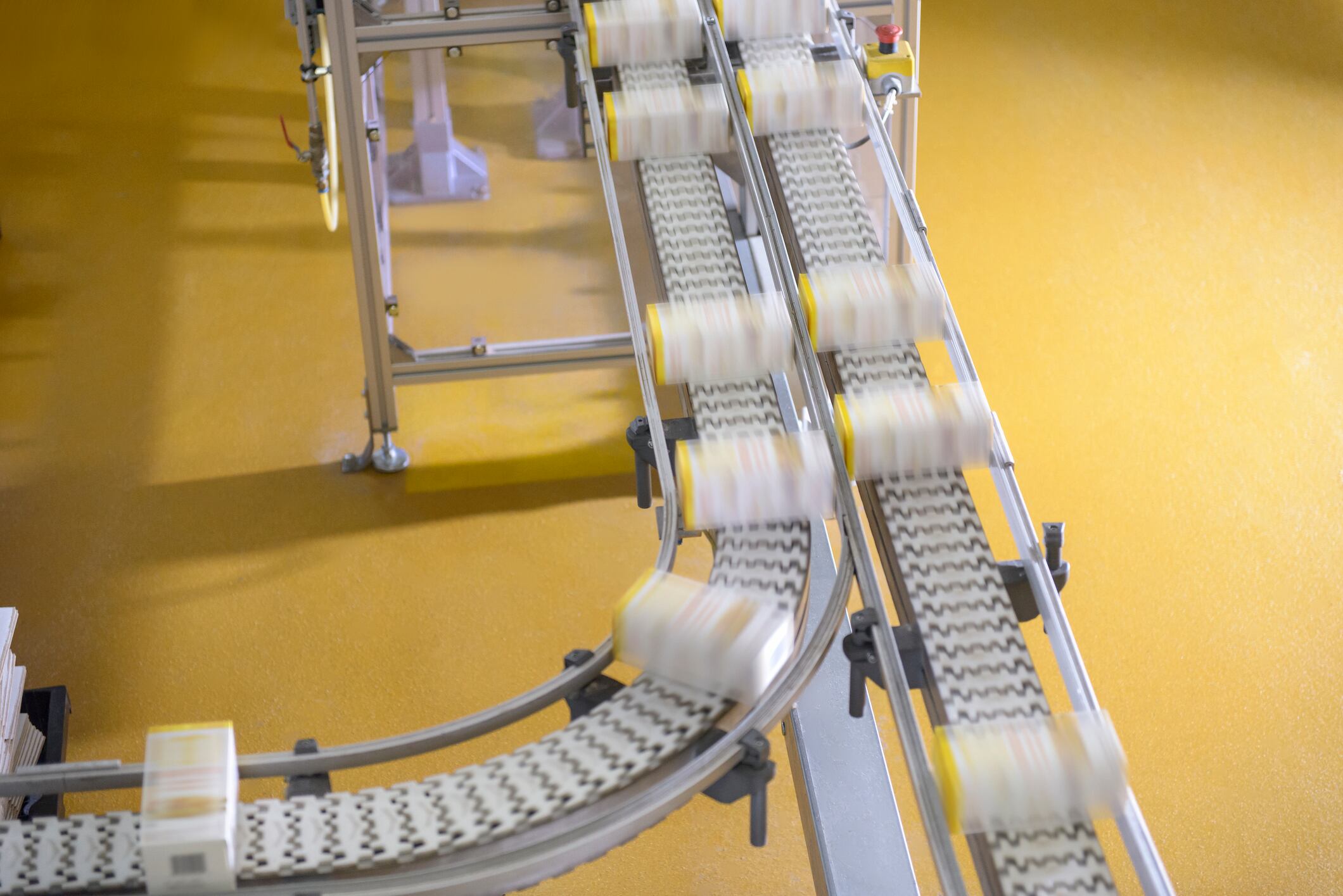Investing in new machinery can be a daunting process, especially for food and drink businesses worried about the high price tag some systems carry.
One of the easiest ways to avoid the cost of buying new equipment is to avoid doing so in the first place. High initial costs, integration challenges and production disruptions can all be worked through and sidestepped by hiring plant and machinery – a ‘try before you buy’ approach.
When it comes to choosing new equipment for the factory, there is no one size fits all approach – each new piece of kit needs to work with your specific set up and the way your site operates.
Stephen Harding, managing director at the material handling specialist Gough Engineering, told Food Manufacture hiring equipment can serve as a confidence-building phase, allowing manufacturers to experience firsthand how – or whether – equipment can integrate into their operations and perform correctly. It can empower manufacturers to test, adapt and fine-tune their operations, and also reduce their initial investment burden.
‘Flexible, cost-effective solution’
“Hiring equipment offers a flexible, cost-effective solution that aligns with operational demands, whether it’s for proof-of-concept trials or routine quality checks,” said Harding. “But equipment hire is not simply about supplying a machine. Really, it’s about ensuring optimal performance for a specific application.”
Harding provided an example of a food manufacturer looking to efficiently process and screen its raw materials within its own factory. Unsure on the right direction to take, the company was reluctant to make the purchase on a new machine.
By hiring a specialised Gough GBS 850 Batch Sieve via the recommendations of Gough’s engineers, the business was able to troubleshoot the entire installation process and management of the system. The company chose to buy the machine after being supported throughout the rental process by Gough’s engineers.
“Financial benefits come to the fore with equipment hire,” Harding added. “The low initial costs associated with hiring, enable manufacturers to thoroughly test and validate machinery before committing to a capital investment.
“This safeguards against costly mistakes and manufacturers can make informed decisions by ‘trying before they buy’. Through hire and loan services, manufacturers can, to reference Henry Petroski, combine ‘knowing’ with ‘doing’ to propel their operations towards a brighter and more efficient future.”
Robotic collaborators
Leasing machinery could also serve as an affordable way to safeguard against the growing staff shortages being experienced across the food and drink manufacturing industry. With the Boston Consulting Group reporting manufacturing companies risk losing 37% of their non-desk-based workforce, it’s no secret that food firms are now searching for a way to fill the labour gap.
Coupled with the changes associated with digitalization, the need to drive improvements in environmental performance and to reduce energy costs, manufacturers are increasingly looking to automation for a solution.
But with budgets under greater pressure than ever, outdated concerns regarding the investment required mean many businesses are not yet taking full advantage of automation opportunities. Collaborative robotics (Cobots) do not require high investment, according to OMRON Electronics Business Development Manager Peter Lange.
“Cobots are easy to deploy for a wide range of activities and the design and implementation of the application can be completed quickly,” said Lange. “In general terms, it is often easiest to assess investment against the manufacturing cost per product and the total investment cost is typically equivalent to one FTE illustrating that ROI is often achieved in one year or less.
“For SMEs in particular, leasing may be a more attractive proposition than CAPEX. Leasing also offers added flexibility, allowing smaller companies to reap the benefits of automation through cobots. If the leasing contract includes maintenance and service, it is easier to keep the cobot fleet up to date minimising downtime without having to budget for additional costs.”
The leasing of cobots becomes a much more attractive option when considering the amount of preparation that needs to be done to make sure such a system can be integrated effectively into the factory.
“Any business considering investing in cobots must ensure the complete solution is covered: a robot application needs tools, peripherals, accessories and more,” Lange continued. “Therefore, the system integrator and cobot manufacturer should offer a complete solution that can also be financed holistically. Patchwork solutions are not very effective.”
A helping hand
Hiring plant and machinery can be a great way to trial solutions before making a commitment, but any decision on whether or not to buy into them ultimately comes down to the cost. If you don’t have the capital, then there’s little reason in even thinking about investing into the upgrade.
But even if the money isn’t immediately on the table, there are still ways that a manufacturer can secure the funds they need through a network of grants available to them. For those looking to adopt digital technologies into their business, Made Smarter is the go-to programme.
Since launching in 2019, the trailblazing North West adoption programme has supported hundreds of food manufacturers with their digital transformation.
This has started with fully funded digital transformation workshops to help makers to develop a digital roadmap to technology adoption and map the skills and leadership development needed to bring about effective change. Impartial expert technology advice helps manufacturers identify potential solutions to their challenges and opportunities, meanwhile grant funding supports the investment in targeted technology projects.
“This tried and tested holistic approach helps SMEs understand what technology is right for them, overcoming two of the key barriers to adoption, the fear factor and the financial risk,” explained Ian Marshall, business advisor at Made Smarter.
“Digital transformation has proven to be crucial to food and drink manufacturers of all sizes. Not only can technologies help makers overcome challenges, but it can also unlock a whole host of opportunities.
“At a time when the sector is battling a crosswind of crises – from the post-pandemic recovery, supply chain challenges and energy costs, to net zero demands and labour shortage – a considered approach to digital transformation has proved vital. We have helped food makers navigate this multitude of challenges to increase productivity, achieve sustainable growth, create new, high value jobs and decarbonise.”
Businesses worried about the high cost of investment into technology like automation can get the financial support they need and reap the benefits of a team that can help guide them through the digital transformation.




